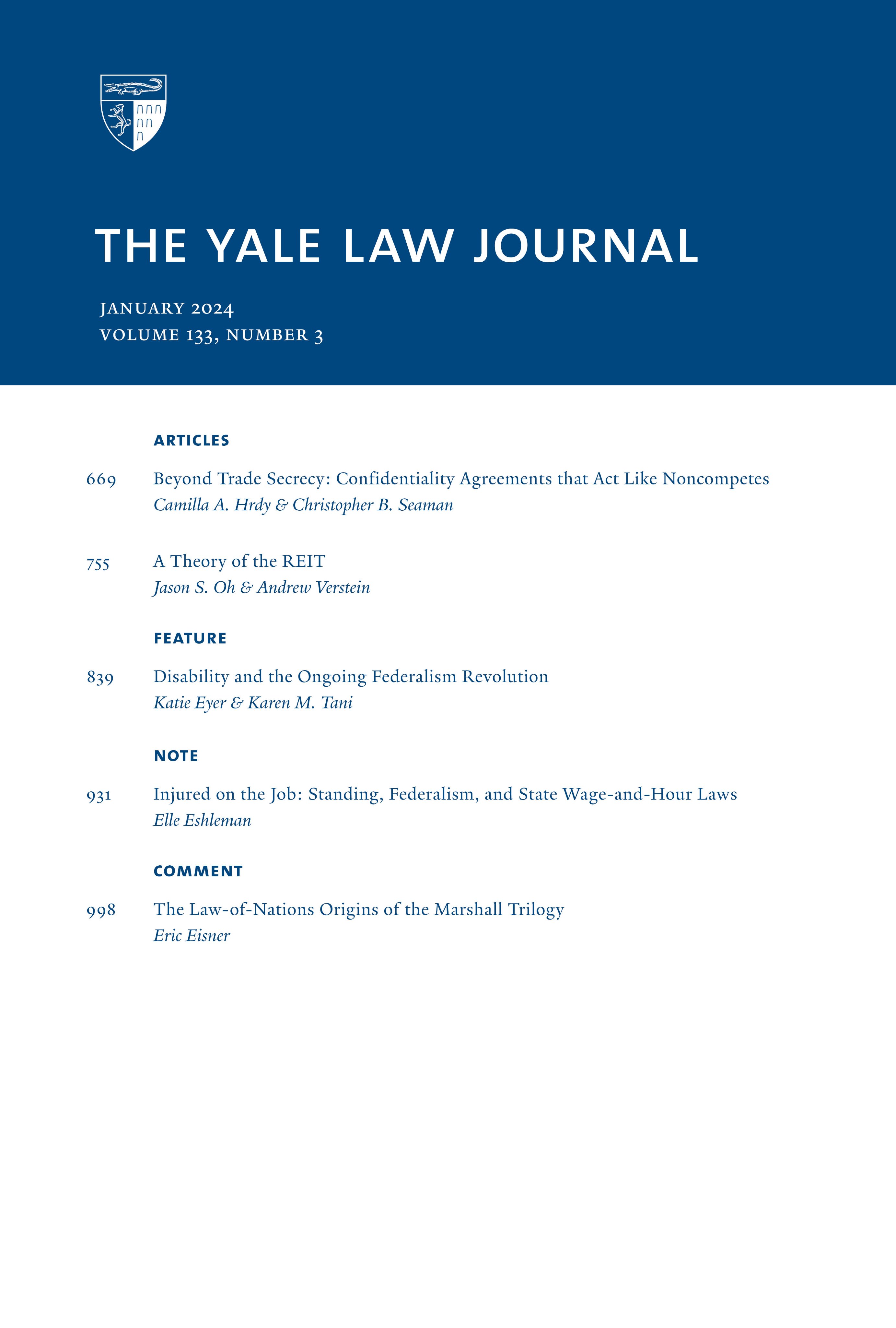有效绩效假说
IF 5.2
1区 社会学
Q1 LAW
引用次数: 20
摘要
著名的美国法学家和学者已经提出了一种执行合同的方法,这种方法可以使违约行为在法律上和道德上都无可争议,并假设赔偿随之而来。这种努力的大部分理由都是基于司法和经济效率的要求。但效率既不支持也不反对这种契约概念,这种概念由有效违约假说形式化。本文提出了一种契约执行的替代方法,即有效绩效假说。另一种方法预测的效率与传统方法相同,但在对合同义务的伦理理解方面却截然不同。有效违约假说认为,允诺人有选择履行或支付损害赔偿的法定权利,而不仅仅是权力。在有效履约假设下,该权利属于承诺人。当然,这些关于承诺义务的离散概念并没有穷尽所有的可能性,但综合这些假设表明,在一个有效的执行框架内,也可以采用其他关于法律和道德义务的概念。本文章由计算机程序翻译,如有差异,请以英文原文为准。
The Efficient Performance Hypothesis
Notable American jurists and scholars have advanced an approach to contract enforcement that would render breach legally and morally uncontestable, assuming compensation follows. Much of the justification for this endeavor has rested upon claims of judicial and economic efficiency. But efficiency neither favors nor disfavors this conception of contract, formalized by the efficient breach hypothesis. This Essay develops an alternative approach to contract enforcement, expressed as the efficient performance hypothesis. The alternative approach predicts the same efficiency as the traditional one, but differs starkly in terms of its ethical understanding of contractual obligation. The efficient breach hypothesis supposes that the promisor has the legal right—not merely the power—to choose to perform or pay damages. That right belongs to the promisee under the efficient performance hypothesis. These discrete conceptions of promissory obligation do not exhaust the possibilities of course, but taken together the hypotheses suggest that other conceptions of legal and moral obligation may be employed within an efficient enforcement framework.
求助全文
通过发布文献求助,成功后即可免费获取论文全文。
去求助
来源期刊

Yale Law Journal
LAW-
CiteScore
4.50
自引率
6.20%
发文量
0
期刊介绍:
The Yale Law Journal Online is the online companion to The Yale Law Journal. It replaces The Pocket Part, which was the first such companion to be published by a leading law review. YLJ Online will continue The Pocket Part"s mission of augmenting the scholarship printed in The Yale Law Journal by providing original Essays, legal commentaries, responses to articles printed in the Journal, podcast and iTunes University recordings of various pieces, and other works by both established and emerging academics and practitioners.
 求助内容:
求助内容: 应助结果提醒方式:
应助结果提醒方式:


